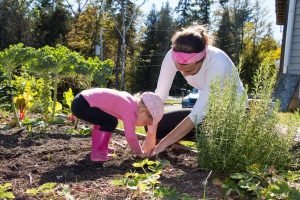Garden Now, Live Longer

A large meta-analysis (a study of studies) compared 26 studies about the benefits of gardening. They found a reduction in depression and anxiety scores, increased quality of life and life satisfaction among participants. The study confirmed “robust evidence for the positive effects of gardening on health” overall, across many demographics. These studies were done in a variety of countries and with different groups, but all showed positive effects and the term “horticultural therapy” has now been coined. Various therapeutic horticulture programs have been used to help people with learning difficulties, veterans, asylum seekers, refugees and victims of torture. People who tend gardens are healthier and have higher self-esteem and well-being. Each session on their plot is linked to a decrease in their level of the stress hormone cortisol. It is pretty clear that spending time in the dirt can clear your mind and drop your stress levels, but can it also make you younger?
Having 10 percent more green space in your surroundings can bring health improvements roughly equivalent to being five years younger, according to a Dutch study of over 10,000 people. Now this group didn’t necessarily even have gardens, but they simply had more plants and trees in their surroundings. Then we have the “blue zone” research pioneered by Dan Buettner of National Geographic. Blue zones have been named for parts of the world where people have exceptional longevity. Not only do people living in blue zones live longer, but they also live better. There are a number of commonalities amongst these “zones”, but one that may surprise you is that in each community the elderly gardened into their 80s and 90s. I don’t find this surprising however, when you think of what gardening provides us. An outside activity (increases vitamin D3) that requires physical activity (benefits heart health) with the result of fresh, organically grown vegetables (mediterranean diet anyone?). On top of all that, Buettner explains that having a small garden plot gives residents a “sense of purpose” which by itself has been shown to increase one’s lifespan by 7 years.
Have I convinced you yet? Well if you don’t want to garden for your mood or longevity, what about brain health? Australian researchers followed men and women in their 60s and found that those who regularly gardened had a 36% lower risk of dementia than their non-gardening counterparts.
So what is it about gardening that results in all of these health promoting effects? Could it be the fresh air, the physical activity, sense of purpose, interaction with healthy microbes in the dirt, or the end product of beautiful vegetables? Well, I think it is probably a synergy of all these things and many others that science simply can’t measure.
References
Masashi S et al. Gardening is beneficial for health: A meta-analysis. Preventive Medicine. Volume 5; 2017. Pages 92-99.
Sempik, J et al. Social and therapeutic horticulture: the state of practice in the UK. CCFR Evidence Papers. Volume 8; 2004.
Detweiler, Mark B et al. “What is the evidence to support the use of therapeutic gardens for the elderly?” Psychiatry investigation vol. 9,2 (2012): 100-10.
environment, Mental health, Naturopathic medicine